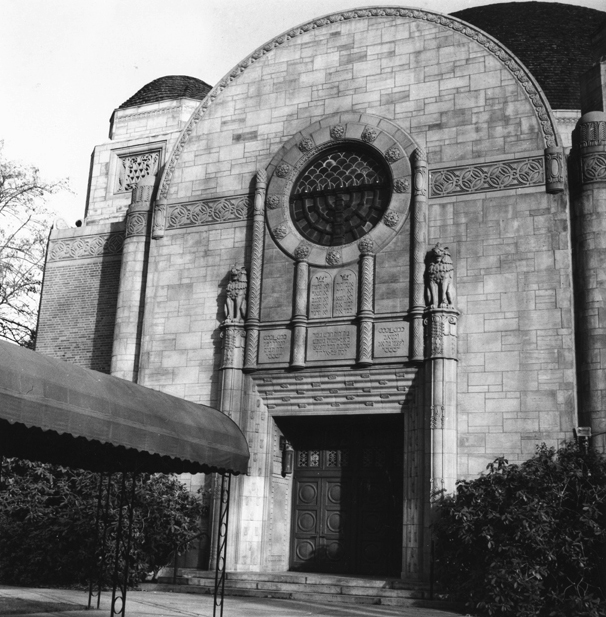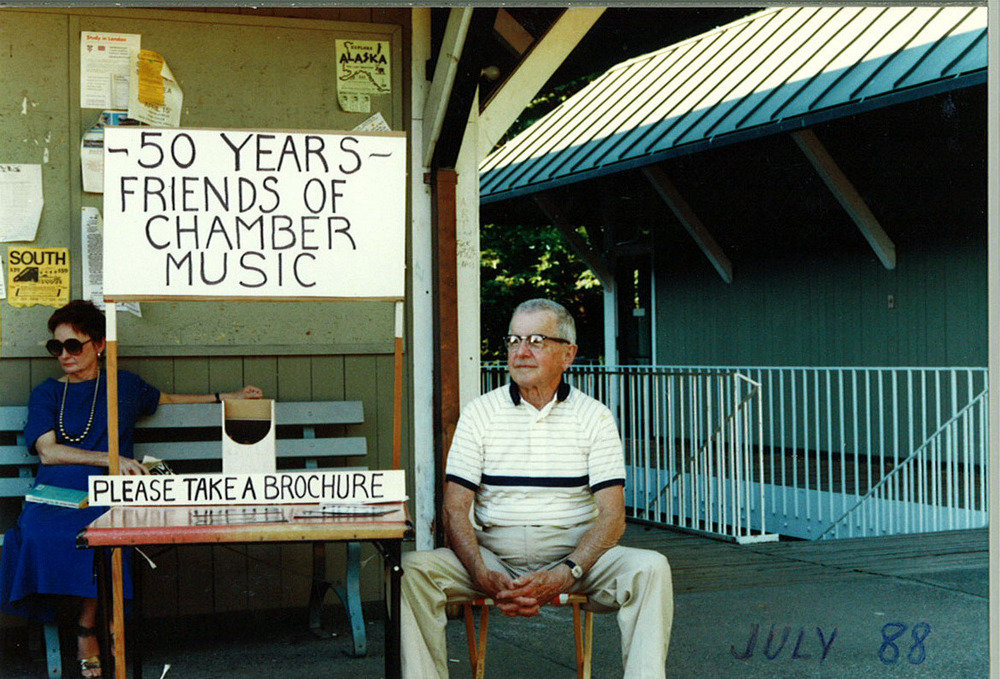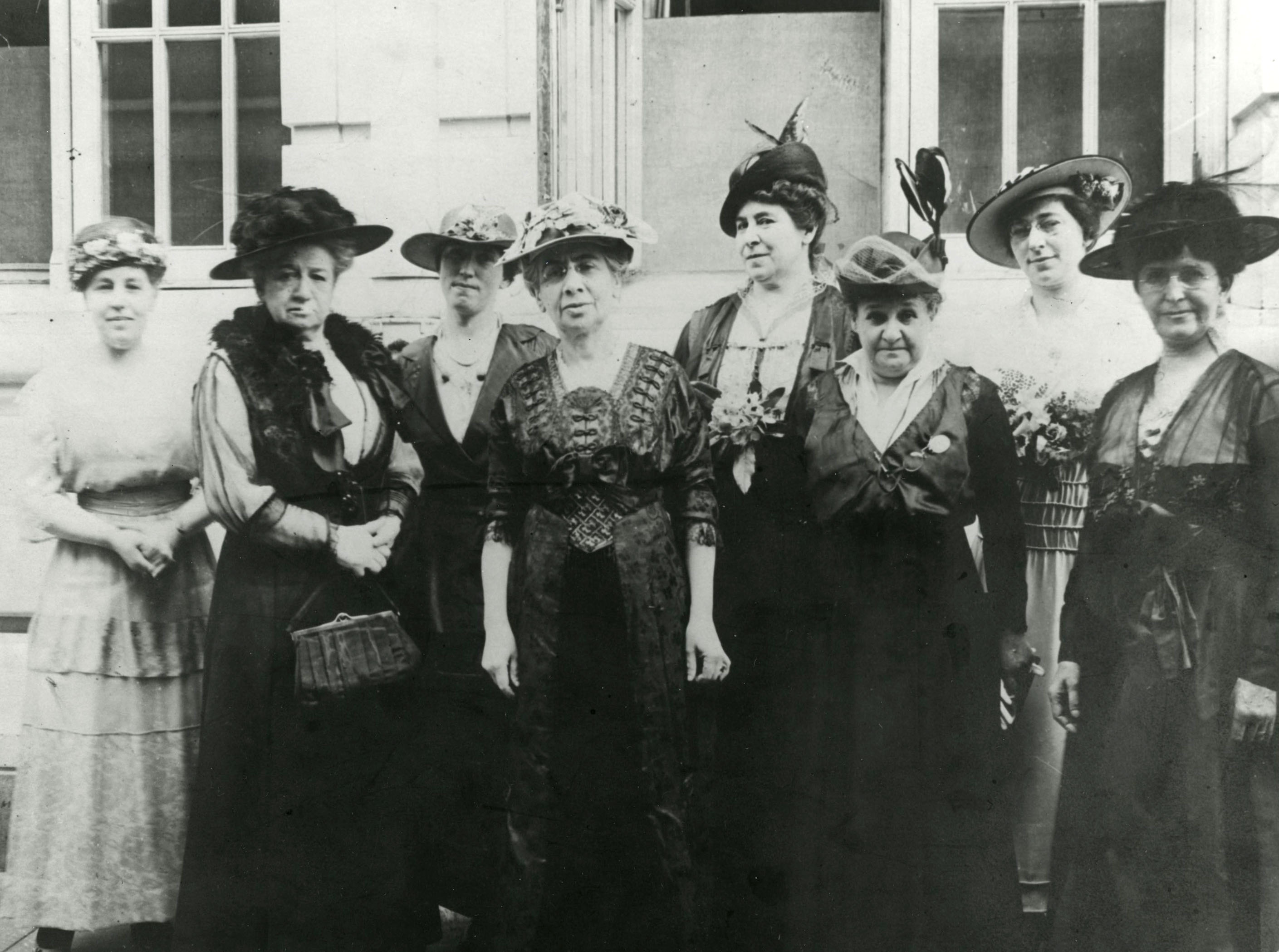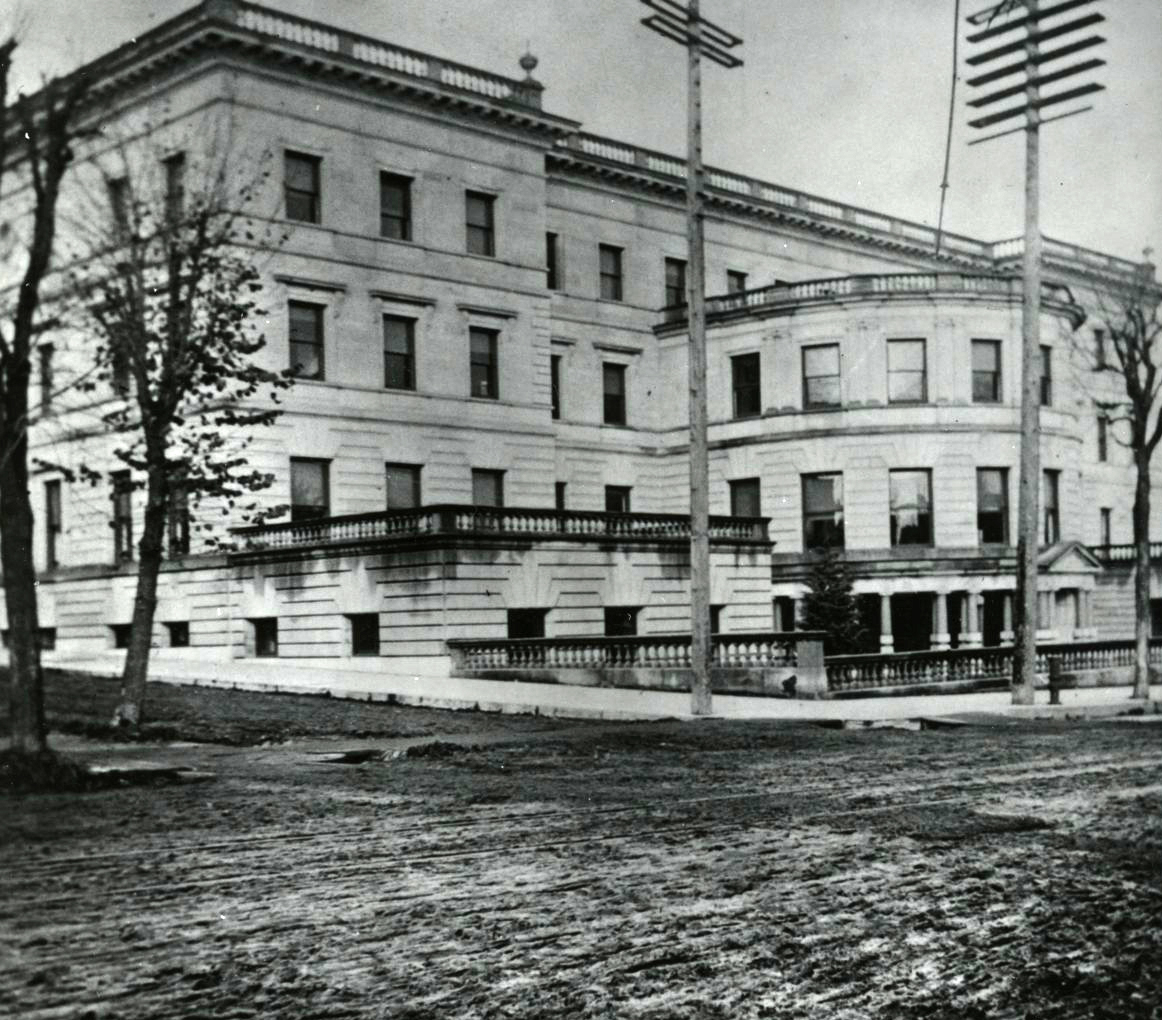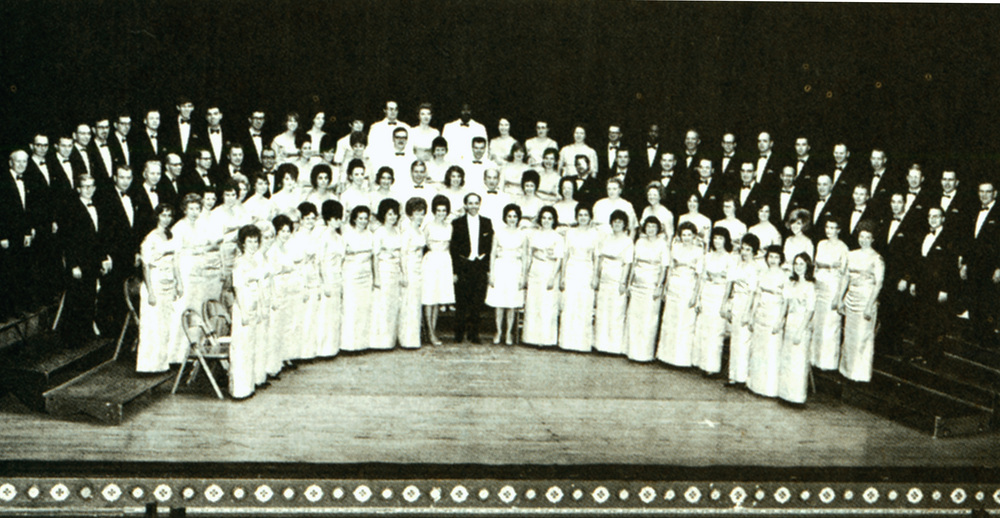Paul Meyer was a prominent Portland attorney with a lifelong passion for civil liberties. He was a founder of the Oregon Affiliate of the American Civil Liberties Union and for twenty-three years served on the ACLU’s national board of directors and on the executive committee for eighteen years. He was also an active public citizen and a strong supporter of the arts, particularly music.
Paul Richard Meyer was born on, April 12, 1925, in St. Louis, Missouri. His father, Abraham, was a chemical engineer educated at Columbia University. His mother, Adele (Rosenfeld), was a professional singer who graduated from Hunter College and was involved in progressive causes. The Meyers were members of the Ethical Culture Society, a humanist community dedicated to ethical relationships, social justice, and environmental stewardship and an important influence in Paul Meyer’s life.
Meyer’s father worked in the family’s Kosher poultry business and developed the process for flash-freezing the poultry. When Paul was fifteen, the family moved to New York City, and Paul attended one semester at the Music and Art High School as a music major. He then transferred to the Ethical Culture Fieldston School, where he graduated in 1943.
Drafted into the U.S. Army at age eighteen, Meyer was assigned to the 70th Oregon Trailblazer Division at Camp Adair, between Corvallis and Albany, where he trained as an infantry machine gunner. In December 1944, his unit was sent to Europe. He was seriously wounded in January 1945 at the Second Battle of the Bulge in Alsace Lorraine and was awarded a Purple Heart and a Bronze Star for his service.
After the war, Meyer returned to New York City and attended Columbia College, graduating in 1949. He attended Yale Law School, where he taught legal research and writing and graduated in 1952, and taught for a year at the University of California Law School. In 1953, he settled in Portland as an associate in the King Miller law firm (now Miller Nash). Meyer married Alice Turtledove in 1958, a marriage that lasted sixty-two years. They had three children. Alice Meyer was active in civic affairs, including serving as board president of the Friends of the Multnomah County Library and on the team that created the Oregon Jewish Museum and Center for Holocaust Education.
In 1960, Meyer and Norman Kobin became partners in a new firm, Kobin and Meyer, the first Portland firm to develop expertise in construction law, although their practice was much broader in scope. When asked about his practice, Meyer replied, “I was the last of the generalists. I was a trial lawyer, I was an appellate lawyer and I was an office lawyer.” The firm grew to fifteen lawyers before it dissolved in 1985. For the next ten years, Meyer practiced with his son David and was “of counsel” to Meyer and Wyse, his brother Roger’s firm. After retirement, he worked as a mediator and arbitrator until well into his nineties.
Meyer’s commitment to civil liberties started early. When he returned to New York after the war he joined the ACLU and the NAACP. In 1948, he participated in sit-ins organized by the Congress of Racial Equality at the lunch counter of the Stix, Baer and Fuller department store, an action that broke the color barrier in St. Louis. As a first-year law student, Meyer founded the New Haven Civil Liberties Council, which became the Connecticut ACLU affiliate. In 1955, he worked with Allan Hart and Maure Goldschmidt to found the Oregon ACLU affiliate and served on its board for more than twenty years. He was also a member of the ACLU lawyers committee and was cooperating attorney on more than sixty pro-bono ACLU cases. His particular interests were freedom of speech and separation of church and state. One of his notable cases was representing twenty-three Black longshoremen in a successful federal suit against Local 8 of the International Longshore and Warehouse Union to gain membership and access to workplace credentials. He also represented many print retailers and owners of film theaters in obscenity cases.
Beyond the ACLU, Meyer was active in public service. As a member of the City Club beginning in 1953, he served on many committees, was a strong advocate for admitting women to City Club, and was particularly active in efforts to change Portland city government to a mayor-council form. Meyer served as an at-large member of the state Teacher Standards and Practices Commission from 1995 to 2001. As a member of that commission he served on the discipline committee and was the principal advocate for requiring teachers to have continuing education. He and Alice Meyer were members of Congregation Beth Israel, and he was active in progressive Jewish causes. For six years he served on the board of Cedar Sinai, a Jewish retirement community.
Meyer loved music and rarely missed the Saturday Metropolitan Opera radio broadcast. He sang in choruses at both Fieldston and Columbia and was a member of the Portland Symphonic Choir. He was on the boards of the Portland Bach Orchestra, the Portland Opera, Friends of Chamber Music, and the Portland Baroque Orchestra. For his seventy-fifth birthday, Alice Meyer purchased the right for him to conduct the Portland Bach Orchestra in one movement of Beethoven’s Fourth Symphony. In preparation for his stint as a guest conductor, Meyer learned how to read an orchestral score and how to conduct. He listened to many recordings of the symphony to find an interpretation he liked. The project took him six months.
Paul Meyer died in Portland on May 1, 2020, at age 95.
-
![]()
Paul Meyer.
Coutesy David P. Meyer
-
![]()
CLU Names Committee, Oregonian, April 26, 1955.
Courtesy Portland Oregonian
Related Entries
-
![Allan Hart Jr. (1909–2002)]()
Allan Hart Jr. (1909–2002)
Allan Hart was a Portland attorney who was a leading specialist in ener…
-
![City Club of Portland]()
City Club of Portland
City Club of Portland is Oregon’s largest civic affairs group. It is a …
-
![Congregation Beth Israel]()
Congregation Beth Israel
Congregation Beth Israel (CBI) is the oldest and most prominent Jewish …
-
![Friends of Chamber Music]()
Friends of Chamber Music
Friends of Chamber Music is the oldest continuously operating chamber m…
-
![Jews in Oregon]()
Jews in Oregon
Jewish Pioneers: Becoming Oregonians In 1869, Bernard Goldsmith, an i…
-
![Portland Commission Government]()
Portland Commission Government
Portland's commission form of municipal government, which the city adop…
-
![Portland Symphonic Choir]()
Portland Symphonic Choir
Struck by Portland's lack of a civic chorus, C. Robert Zimmerman decide…
Related Historical Records
Map This on the Oregon History WayFinder
The Oregon History Wayfinder is an interactive map that identifies significant places, people, and events in Oregon history.





